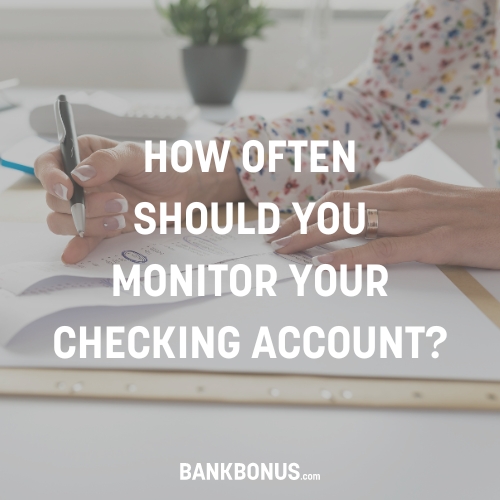You have some cash to stash — awesome! But now you need to find a place to safely park it.
Should you invest, deposit it into a bank account, or hide it under the couch? The answer completely depends on you, your goals, and how much cash you actually have.
In this post, I’ll talk about some of the best places to park cash. From high-interest bank accounts to low-risk investment opportunities, learn how to make your money work for you.
Where Is the Best Place to Park Cash?
Several factors come into play as you think about where to house your money. If we narrow cash management down to a simple goal, it’s that you want access to the cash you need while allowing the rest to grow.
Easy, right? But how do you make sure that actually happens?
In general, there are three main things to focus on: access, cost, and growth. Let’s take a quick look at each area and how you can apply them to your current cash pile.
Access
To start, there’s the obvious reality that you need access to your money to pay bills and live your life. These day-to-day expenses are unavoidable, so a certain percentage of your cash must be easily accessible.
How much you need immediate access to depends on your expenses. As a starting point, make a budget and figure out how much you typically spend each month. Once you know how much you need, you can move on to your plan for the remainder.
Cost
No matter where you park your cash, you need to ensure that it isn’t costing you money. If you have a bank account where the fees outweigh the interest earnings, it’s time to move on to a new one. Similarly, if your investment account charges more fees than you see in returns, you need to re-think your strategy.
While it can be tricky to avoid fees entirely, the key here is to keep them as low as possible. Focus on fee-free accounts (there are plenty of them), and make sure that you choose an account with a reasonable minimum deposit requirement.
Growth
Your reserve cash shouldn’t be sitting idly. Of course, the cash you use for daily expenses isn’t yours long enough to earn anything, but your emergency fund and long-term savings should always be growing.
Fortunately, there are plenty of opportunities to help it along. For example, you can earn interest with a high yield savings account or take on a little more risk with a brokerage account. No matter which direction you go, just make sure that you aren’t putting your money in a compromising position.
6 Best Places to Park Your Cash
- Checking Account
- Savings Account
- Money Market Account
- Brokerage Account
- Short-term Investment
- Long-term Investment
1. In a checking account
For everyday expenses, a checking is a must-have deposit account. This is where you’ll keep the cash you need to pay your credit card bill, rent, and many other costs. Checking accounts come with a debit card for ATM access and can be directly linked to a savings account.
I highly recommend opening a checking account that is entirely fee-free. You can find a free account with most reputable online banks, which give you easy digital access whenever you need it.
While the main function of a checking account is to cover expenses, you can also earn on your balance with interest-bearing checking. These accounts are becoming more common and come with an Annual Percentage Yield (APY) attached to your balance.
2. In a savings account
Savings accounts are the lowest-risk way to park your cash, and your balance will only increase if the account is interest-earning.
In other words, you cannot lose money.
The other benefit of a savings account, as opposed to tying money up in investments, is that you still have easy access to it. This is why most people consider their savings an emergency fund. You won’t see huge returns on interest, but your money can still grow without restricted access.
There are a few things to look for as you work to find the right savings account. First, any account you’re considering needs to be FDIC-insured. This guarantees that your money is protected (up to $250,000) if your bank fails. From there, you want to focus on a savings account with a high APY.
Again, this is where you may want to focus on an online savings account from a bank or credit union. Traditional brick-and-mortar banks almost always offer the lowest rate coming out of the Federal Reserve, so you’ll get a higher interest rate with a digital option.
Another option, if you have some flexibility, is to open a Certificate of Deposit (CD) account. A CD is a type of savings account that limits your access to the funds in it until the account matures. There are two main benefits to a CD. First, CDs often come with higher yields. The second is that the nature of a CD limits temptation. If you have less access to the money, you’re more likely to let it sit and grow.
CD terms come in various lengths, from one month to one year to multiple years.
3. In a money market account
A money market account generally sits somewhere between checking and savings. These accounts are interest-bearing, making them a good option for savings. Money market accounts also usually come with a debit card for easy access.
Whether or not a money market account is a good call comes down to the bank. While money markets sometimes offer higher rates, they’re also regularly outpaced by many high-yield savings accounts.
As you work to decide where to keep your cash, keep the principles (access, cost, and growth) we covered in mind. It’s possible that a good money market account can cover all three, but you need to weigh the pros and cons of each available account.
4. In a brokerage account
Once you have your monthly expenses and emergency fund covered, you might choose to invest your remaining cash.
Investing is the best way to aggressively grow your net worth, but that opportunity comes with some added risk. While the goal is to grow what you have, there’s always the possibility of losing money.
If you’re opening your first investment account, don’t be afraid to ask for guidance. A good financial planner can help you navigate the market and find the investments that make the most sense for your situation.
But, in general, the key is to focus on low-risk, diversified investments. It isn’t advisable to put all of your eggs in a single basket, and you don’t want to allocate your entire investing budget to a volatile venture.
Fortunately, there are plenty of brokerage accounts designed for beginners. For example, you could start with a robo-advisor like Acorns or open a managed account overseen by a professional.
As you try to find the right fit, you have plenty of options. You could choose an established, traditional broker like Fidelity or Vanguard, or go with an app-based newcomer like Robinhood. Each platform has its own pros and cons, so take some time to research and figure out what’ll work for you.
5. In a short-term investment
As you can probably tell, there are tons of different investment options. It might seem overwhelming at first, but the reality is that any investment opportunity follows some basic principles.
A short-term investment is generally highly liquid, meaning you can convert the asset into cash with relative ease. There’s no set timeline to be considered short-term, but most professionals consider liquidity in under five years as a benchmark.
The benefit of a short-term investment is that you can access your cash quickly if you need to. The trade-off, of course, is that these types of investments usually net lower returns. That said, if you’re still working toward a higher level of financial flexibility, it’s a great idea to focus on liquidity.
For a more in-depth look, check out our post on the best short-term investments.
Exchange-Traded Funds (ETFs)
An ETF is a pooled security investment that looks like a mutual fund but trades like an individual stock. It’s a diversified collection of securities that operates as an individual asset.
Unlike a mutual fund, which is priced and traded once per day, an ETF’s value changes throughout the trading day, just like a company’s stock. This provides an opportunity for lower-risk trading since an ETF doesn’t carry the same volatility as an individual stock.
Money Market Funds
A money market fund, not to be confused with a money market account, is a type of mutual fund. The difference is that instead of stocks, a money market fund is made up of cash and debt-based securities. These funds are considered low-risk and highly liquid, making them a great option for the short term.
US Treasury Bills
US treasury bills are government bonds that you can purchase as an investment. When you do so, you’re effectively lending money to the government for public projects, which they’ll pay back with interest.
Short-Term Bond Funds
A short-term bond fund is a pooled collection of US government bonds, corporate bonds, or municipal bonds that will mature in one year or less. Like any diversified fund, this option comes with minimal risk and should result in steady, predictable returns.
6. In a long-term investment
If you have some flexibility and a high risk tolerance, you might be ready to consider some longer-term places to park your cash. Just keep in mind that you should be prepared to have limited access to the invested cash for five years or more with these types of investments. But, in exchange for the risk and time commitment, you can expect higher returns.
Some of the long-term nature of investments comes from a lack of liquidity, which you’ll see with a real estate investment. When you make a down payment on an investment property, you shouldn’t expect to be able to sell for a cash profit any time soon.
In other investments, it comes down to access. For example, a retirement account such as an IRA is a long-term investment by design. You cannot access the money (without huge penalties) in the account until you reach 65.
You can also plan for the long-term with the stock market. In this case, you want to focus on steady, minimal-risk opportunities that will pay off big over time. In general, the most common way to invest in the stock market long-term is through a mutual fund or long-term bond fund.
You shouldn’t be afraid to seek out investment advice from a financial planning expert with long-term investing. Long-term investments can be tricky, and you want someone on your side who can steer you in the right direction.
Frequently Asked Questions
Where’s the best place to park cash?
It depends on what you want that cash to do. The answer is completely different based on what you’re looking for. So, before you think about where to park your cash, think about what you’re after. Is it a high return? Easy access? Freedom from fees?
Once you figure that part out, the correct choice should seem clearer.
Where should you put cash right now?
If you have excess cash after expenses, the biggest thing is that it shouldn’t be sitting somewhere idly. Cash is an asset, and you can turn it into more fairly easily. At the very least, your extra cash should be sitting in an interest-bearing bank account.
Where is the safest place to store cash?
The safest place to store cash is in an FDIC-insured bank account. You cannot lose money, and even if the bank itself fails, you’re covered up to $250,000.
Where can I store my cash?
If you’re talking about literal paper money, you have a few options outside of your wallet. Of course, you can keep it in a safe place in your home, but the downside is that you’re not earning anything on that capital.
If you work in a cash-based industry, you should find a bank account that allows for easy cash deposits. Unfortunately, most online banks fall short in this area, so you might want to consider a traditional brick-and-mortar bank.
Know Where To Park Your Cash
Overall, if your biggest personal finance problem is figuring out where to store all your cash, you’re in pretty good shape.
Cash on hand offers flexibility, peace of mind, and the opportunity to build up your net worth. The key is to park it somewhere that allows it to flourish.
Now that you know where to start, you should be able to find a spot that’s the best fit for you and your money. In all likelihood, it’ll be a combination of several of the options we talked about. If you stay organized and stick to a plan, there’s no limit to how far you can go.





Comments are closed.
Comments are closed here.